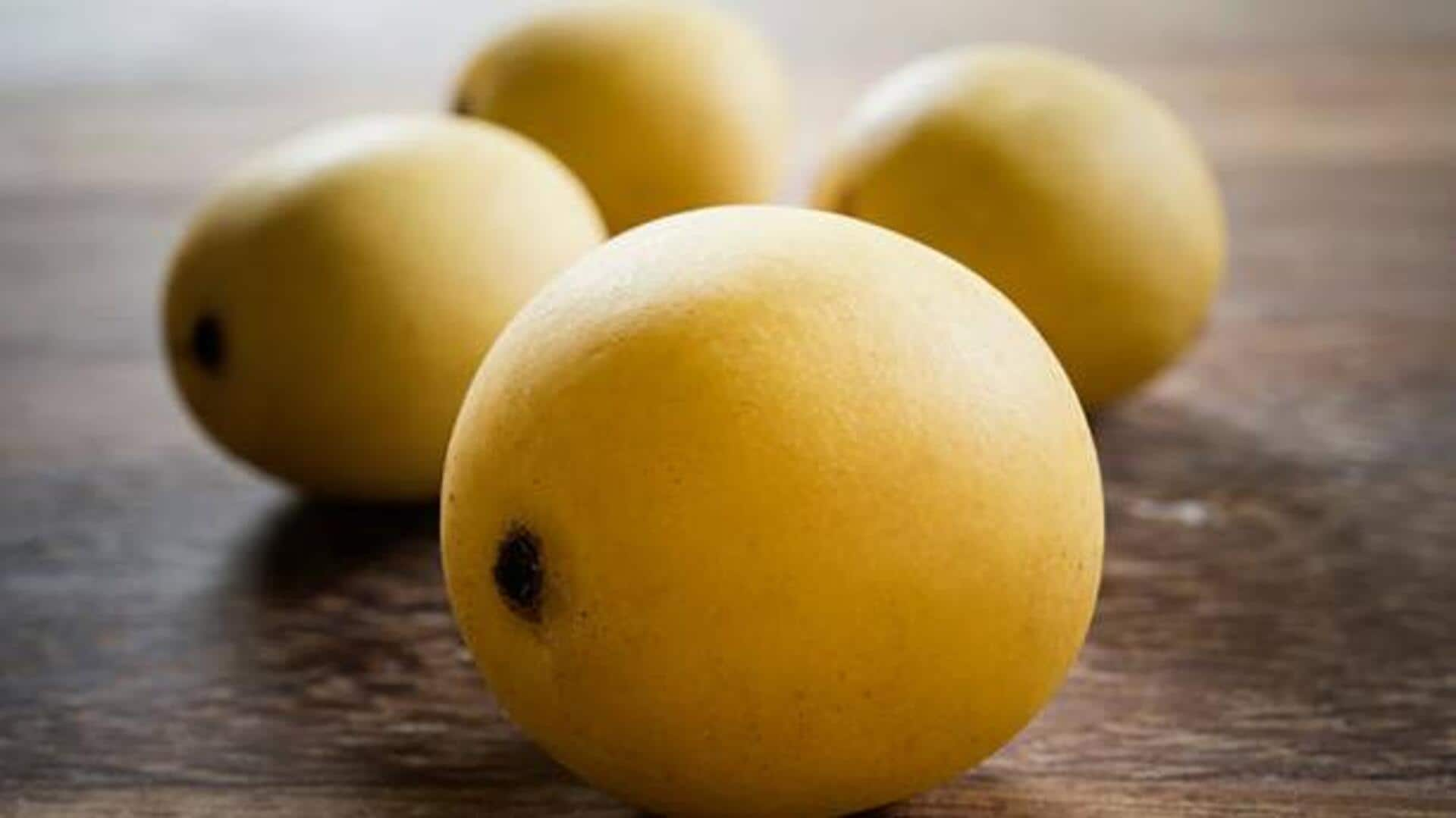Unveiling Africa's marula superfruit
What's the story
The marula fruit, indigenous to the woodlands of Southern Africa, is the new superfood in town.
This article provides a comprehensive analysis of the unique properties and benefits of the marula fruit.
It discusses its nutritional content, health benefits, culinary uses, and its potential to transform the economies of rural communities.
Nutrients
A nutritional powerhouse
The marula fruit, native to southern Africa, is a true nutritional dynamo. Packed with vitamin C (think four times the amount in an orange!)
It also holds a high concentration of antioxidants, essential amino acids, and flavonoids.
These nutrients are key for boosting immunity, fighting inflammation, and tackling harmful oxidative stress in the body.
All these benefits make marula fruit a super addition to a healthy diet.
Economy
Economic lifeline for communities
In the remote landscapes of Southern Africa, home to the wild marula trees, the fruit harvest season is a lifeline. It brings hope and sustenance to thousands of families.
Women are at the heart of this tradition, hand-collecting the fruits and transforming them into oils and a range of products.
This not only provides economic empowerment to these communities but also promotes sustainable practices that protect these indigenous trees.
Cuisine
Culinary versatility unleashed
Marula fruit shines in culinary versatility. Its zesty flavor is ideal for jams, juices, smoothies, and desserts.
The oil from the kernel enhances cooking and is used in moisturizing skincare products.
This versatility demonstrates marula's wide appeal, from delicious meals to natural beauty remedies, solidifying its status as a superfood.
Wellness
Boosting health naturally
In addition to its nutritional value, marula fruit has a long history of use in traditional African medicine for the treatment of various ailments, including diarrhea, dysentery, and rheumatism.
Its high antioxidant content further contributes to skin health, both when applied topically and consumed as part of a balanced diet.
Sustainability
Sustainable harvesting practices
To guarantee the long-term sustainability and benefit of marula harvesting for both the environment and local communities, strict measures are in place.
These include following ethical harvesting practices, which ensures the tree species is not overexploited.
Such measures not only secure its presence for future generations but also contribute to biodiversity conservation.
This commitment extends beyond environmental stewardship, fostering economic prosperity for communities dependent on marula harvesting.
